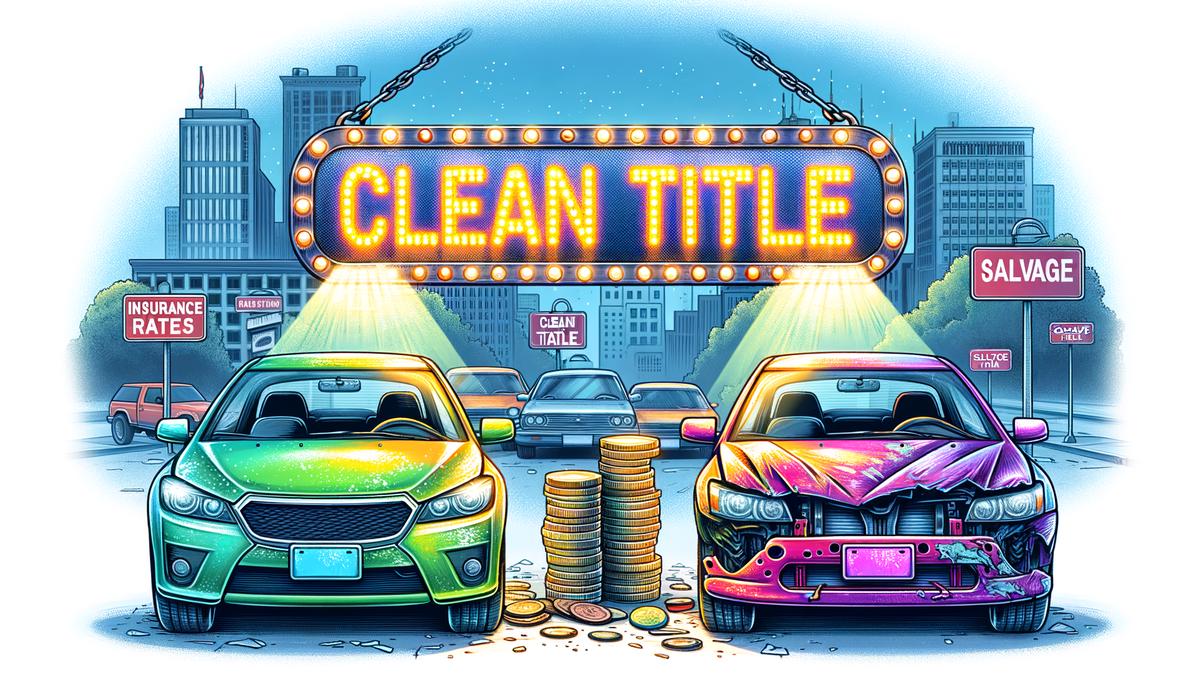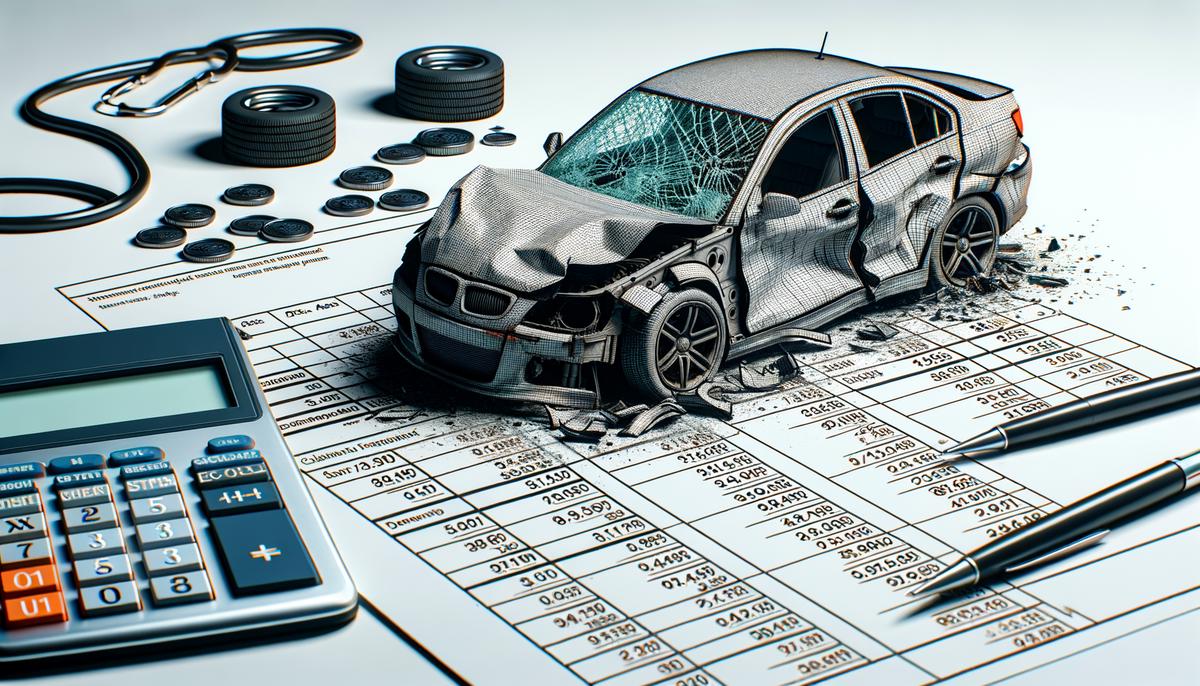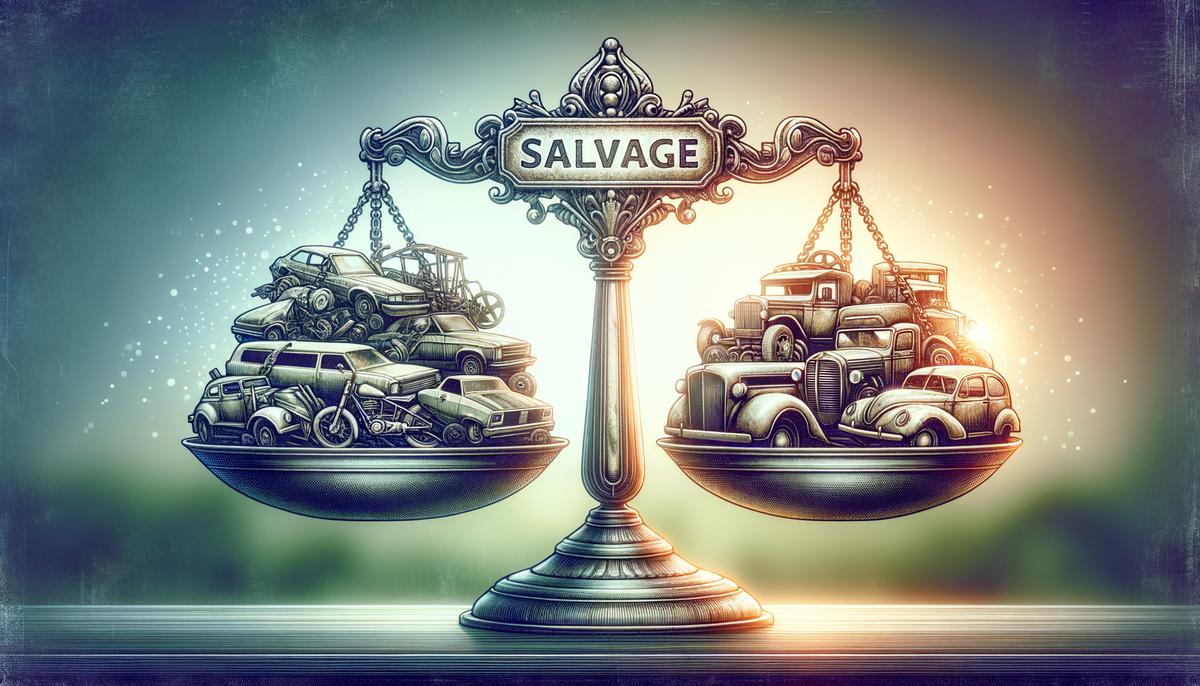When a vehicle gets a salvage title, it means it’s seen better days, often due to significant damage or theft. This label affects everything from auto insurance to resale value, presenting a set of unique challenges and considerations for owners. Understanding the implications of a salvage title is crucial for anyone considering buying or insuring such a vehicle.
Understanding What a Salvage Title Means
A salvage title is assigned to a vehicle that has been deemed a total loss by insurance companies due to damage or theft. This designation occurs when the cost to repair the vehicle exceeds a certain percentage of its value, determined by state regulations. The specific threshold varies, but generally, if repair costs approach or surpass 75% of the vehicle’s worth, it is branded with a salvage title. Vehicles with such titles have been through significant events, such as accidents, floods, or other natural disasters, which have led to substantial damage.
Obtaining auto insurance for a vehicle with a salvage title can be challenging and often more expensive than for a vehicle with a clean title. Many insurance companies are hesitant to offer comprehensive coverage because determining the true value and safety of a previously totaled vehicle is difficult. If coverage is offered, it may only include liability insurance, protecting against damage or injuries the driver may cause to others but not covering the salvaged vehicle itself. For those seeking full coverage, thorough inspections and detailed repair documentation might be required to assess the vehicle’s current condition accurately. Thus, owning a vehicle with a salvage title not only impacts its insurability but also involves navigating additional complexities to secure insurance protection.
Pros of Buying a Salvaged Car
-
Cost-Effective: Salvaged cars typically cost much less than comparable models with clean titles. This can be especially beneficial if you’re on a tight budget.
-
Ideal for Parts: If you need parts for another vehicle, buying a salvaged car can be a cost-effective way to get them.
-
Learning Experience: Fixing up a salvaged car can provide a great learning opportunity if you’re interested in car mechanics.
Cons of Buying a Salvaged Car
-
Damage: By definition, a salvaged car has suffered significant damage. Even after repairs, there may be hidden issues that could cause problems down the line.
-
Insurance Difficulties: Many insurance companies are hesitant to cover salvaged cars, and those that do often charge higher premiums.
-
Financing Challenges: It can be difficult to secure financing for a salvaged car, as many lenders view these vehicles as high-risk investments.
-
Resale Value: Salvaged cars generally have lower resale values, even after they’ve been fully repaired.
-
Safety Concerns: Depending on the extent and nature of the damage, a salvaged car may not be as safe as a comparable model with a clean title.
Remember, it’s crucial to have a trusted mechanic inspect any salvaged car before you buy it to ensure you’re fully aware of any potential issues.
Insurance Premiums for Salvage Titles
Vehicles with salvage titles often incur higher insurance rates due to the increased risk they present to insurance companies. After a vehicle has been labeled as a salvage, it indicates that it has undergone significant damage in the past, which raises concerns about its overall safety and reliability. Even after repairs, there’s an inherent uncertainty regarding the quality of those repairs and whether the vehicle meets safety standards. This uncertainty contributes to the perception of a higher risk profile for salvage title vehicles compared to those with clean titles. Insurance providers, in assessing this elevated risk, may charge higher premiums to mitigate potential future claims stemming from issues related to the vehicle’s prior condition.
Furthermore, the resale value of a vehicle with a salvage title is invariably lower than that of a comparable vehicle with a clean title. This diminished value reflects not just the history of significant damage but also potential difficulties in future resales or trade-ins. From an insurance perspective, this lower value complicates the process of determining appropriate coverage limits and premium levels. If a salvage title vehicle is involved in an accident, determining the compensation becomes more challenging due to its already compromised value. These complexities necessitate a more careful risk assessment by insurers, often resulting in higher premium costs for the vehicle owners. Despite the possibility of restoration and passing requisite safety inspections, the lingering doubts about a vehicle’s integrity after a major incident lead to these increased insurance costs.

Claim Payouts for Salvage Title Vehicles
When insurance companies calculate claim payouts for salvage title vehicles, the process involves a detailed assessment and adjustment for the car’s diminished value. Given the history of significant damage that led to the salvage title, these vehicles inherently possess a lower market value compared to similar models with clean titles. Insurers take into account the current market value, often using industry-standard databases and tools to determine the vehicle’s worth just before the incident leading to the claim. This valuation reflects the reduced selling price of salvage vehicles but also considers the specific condition, age, mileage, and any enhancements or repairs made post-reconstruction.
Furthermore, the calculation of claim payouts for salvage title vehicles typically involves subtracting the deductible and any depreciation tied to the car’s condition before the accident from its assessed current market value. Since salvage title cars have already been deemed a total loss once, determining their value in the aftermath of a new claim can be complex. The process aims to fairly compensate the owner while acknowledging the unique status and inherent limitations in valuing such vehicles. Insurance companies may also factor in local laws and regulations that govern salvage titles, as these can affect the vehicle’s future usability and therefore its value. As each salvage vehicle presents a unique case with its own history and set of repairs, insurers meticulously document their assessment process to ensure an equitable payout.

Insuring a Salvage Title Vehicle
Insurance coverage for vehicles with salvage titles is indeed possible, but it comes with its own set of prerequisites and challenges. After a vehicle has been repaired and deemed safe for operation, the owner must navigate through certain procedures to insure it. Initially, some insurance companies require a comprehensive inspection of the vehicle to assess its road worthiness and the quality of the repairs carried out.
Owning a vehicle with a salvage title comes with its fair share of hurdles, especially when it comes to insurance. Despite these challenges, understanding the ins and outs of insuring a salvage vehicle can make a significant difference. By securing the right coverage and meeting all necessary conditions, salvage title vehicles can still serve as reliable and functional transportation options, albeit with a history. The key lies in thorough documentation, understanding the insurance landscape, and ensuring the vehicle meets safety standards after its repair.

